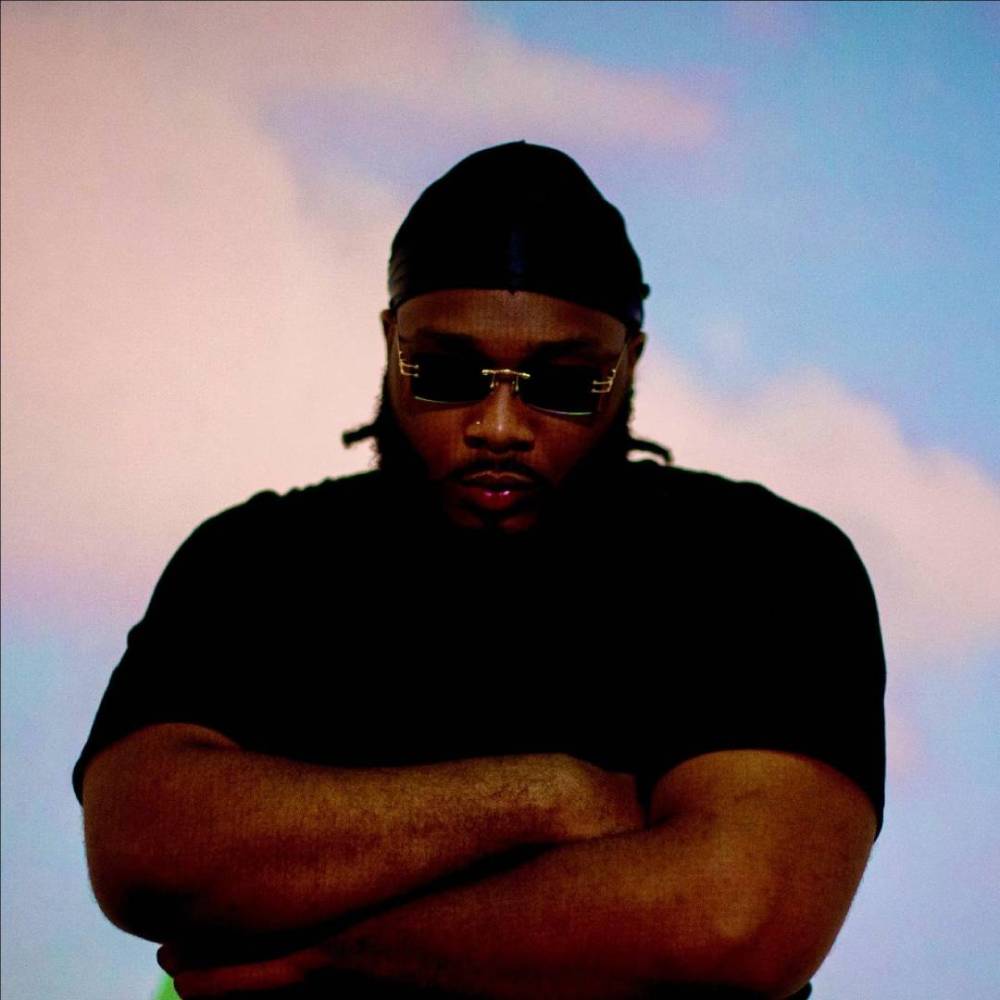Image via Jesse Fox Hallen
Will Schube still can’t believe Larry David got Salman Rushdie to say ‘fatwa sex’ on Curb Your Enthusiasm..
MESSIAH!’s the villain wins! reminds me of dramaturgical masks with a crying and a laughing face. On one song, the North Carolina native sounds weary and defeated. On the next, he’s triumphant and jubilant. It’s this duality within songs and across the album that gives it such depth.
All things considered, MESSIAH! is generally happy. He has close friends and collaborators, a tight-knit family, and a burgeoning rap career. But nihilism always lurks. Quitting feels awfully tempting when you’re barely surviving, and you know that living well means cultivating a villainous streak.
The title for the August release was inspired by Jay-Z’s “Dead Presidents II” lyric: “I’ll tell you half the story, the rest, you fill it in/ Long as the villain win.” It’s a tribute to his dad’s favorite rapper, but it’s also representative of an idea he examines throughout the album. “In my experience as a Black man, the things we got to do to survive be looked at as evil.”
Outside of the Hova classics in his dad’s car, MESSIAH! was raised in a household where music was a constant. He got his taste from whoever was DJing. “My pops was obsessed with JAY-Z. My mom was the R&B head, and to this day Usher’s Confessions remains one of my favorite albums,” he explains. “When family was visiting, my grandparents would play gospel music and my auntie was always in charge of the radio hits.”
MESSIAH! was a listener. He rarely spoke and was painfully shy as a child — hard to believe considering how many thoughts he crams into the villain wins’!. He rarely talked at school, and the only way he felt comfortable expressing himself, he claims, was by freestyling with his buddies.
The meaning of rap changed for him when Trayvon Martin died in 2012. This was the first moment that a then-teenaged MESSIAH! saw someone like him as “the villain,” a victim murdered for merely being Black. Rap became more than a fun way to pass the time with his friends. He saw someone like him get killed for walking down the street. It created an empathy for marginalized people that still makes its way into most of his songs. “I wrote a rap about his death. I was 12, having emotions about a young Black boy who was dead. When I transformed it into a song, I think I finally realized what rap could do for me,” he explains.
Two years later, MESSIAH! got his first official feature. He earned $50 from his dad’s friend who owned a recording studio and needed a last-minute verse for a project he was working on. That same family friend helped him build his first studio, lending spare mics and offering advice.
“I figured out you could hook the Guitar Hero mic up to a laptop. I was using that shit on Audacity, making demos whenever I could,” he explains. It was because of this set-up that he met his schoolmate MAVI, and the only rapper who MESSIAH! says could keep up with him during those high school battles.
The duo quickly forged a brotherly kinship from rap. While attending Howard University, they crashed spoken word slams and tested their rhymes. Another experience at Howard helped further illuminate American corruption. He was the victim of the massive financial aid scandal at Howard, after an internal investigation “found evidence of misappropriated financial aid funds allegedly totaling $1 million.” MESSIAH! took out a loan to cover the difference in his scholarship money and ultimately had to leave the school because his aid fell through. Even still, he remained saddled with debt.
The nightmarish experience perversely helped him become an adult. He remained in the area, living a lonely life in Maryland and kept writing raps. When he needed a break, he’d link up with MAVI in the district. During this period, MESSIAH! fully threw himself into his rap career.
The next logical step involved moving to LA. Here, he recorded 2022’s PERFECT 7 and found a like-minded community of collaborators. Hope was squashed as quickly as it formed. Despite finding inspiration, MESSIAH! returned home for “personal reasons.”
MESSIAH!’s style takes cues from the South, East Coast, and LA alike, so his sound is boundary-less. Imagine Vince Staples penning an anti-cop anthem in the vein of “March Madness” and you get close. Little Brother hopping into a lowrider with Bun B comes even closer. MESSIAH! is cerebral, but he delivers gut punching emotion. His music reflects the sound of someone who endured myriad struggles ans persevered. He was robbed of an education, but still built a thriving career. He was hit by a car that could have left him dead, yet he walked away without a scratch. MESSIAH! didn’t need to be the bad guy, but this crooked world made him this way. This villain is winning.

